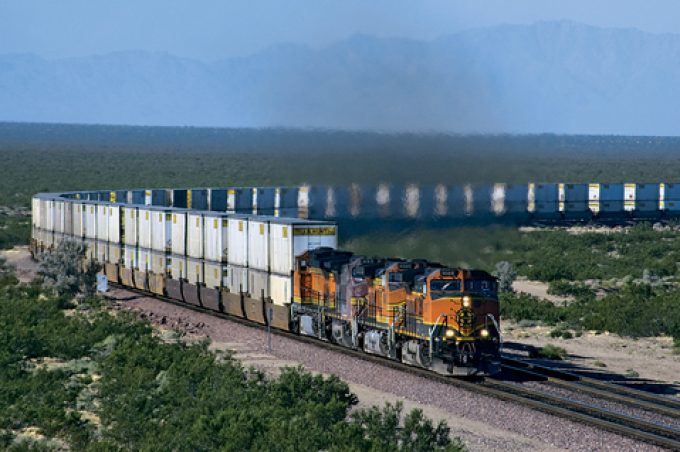US shippers slam USTR port fee plan – 'an apocalypse for trade'
The Trump administration’s plan to revive US shipbuilding by levying hefty fees on China-built or ...

After a long trough of sluggish performance, US intermodal traffic is growing, and the market points to larger gains ahead.
This month Union Pacific (UP) opened a new route between Chicago and southern California, featuring transits of 4-6 days between its Inland Empire terminal in Fontana and Northlake, targeting intermodal traffic that would otherwise move by truck.
In its announcement, the railway stressed the benefit of lower drayage costs for shippers at both ends of the route.
In a separate move, UP is ...
'Disastrous' DSV-Schenker merger would 'disrupt European haulage market'
New senior management for DSV as it readies for DB Schenker takeover
Volumes set to 'fall off a cliff' as US firms hit the brakes on sourcing and bookings
Asian exporters scramble for ships and boxes to beat 90-day tariff pause
Amazon pushes into LTL for small package fulfilment and UPS does a u-turn
Temporary tariff relief brings on early transpacific peak season
Pre-tariff rush of goods from US to China sees air rates soar, but not for long
Forwarders 'allowing the fox into the chicken run' by supporting 'hungry' carriers

Comment on this article